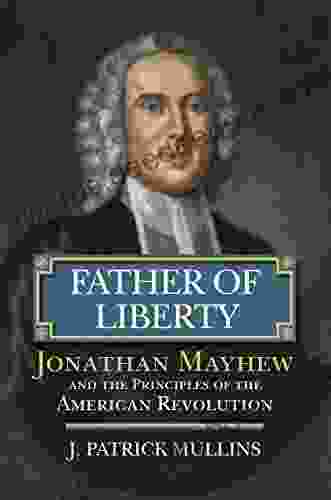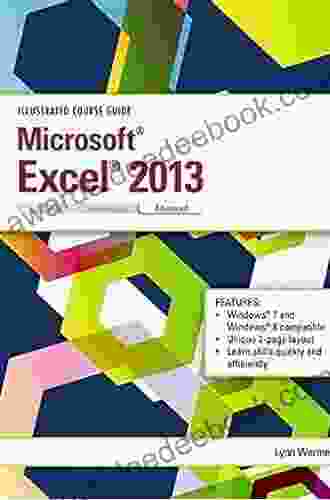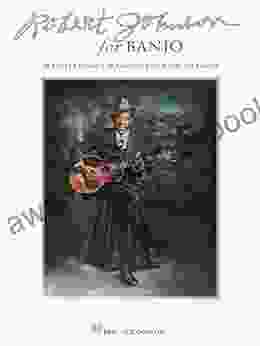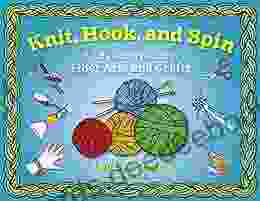Jonathan Mayhew and the Principles of the American Revolution

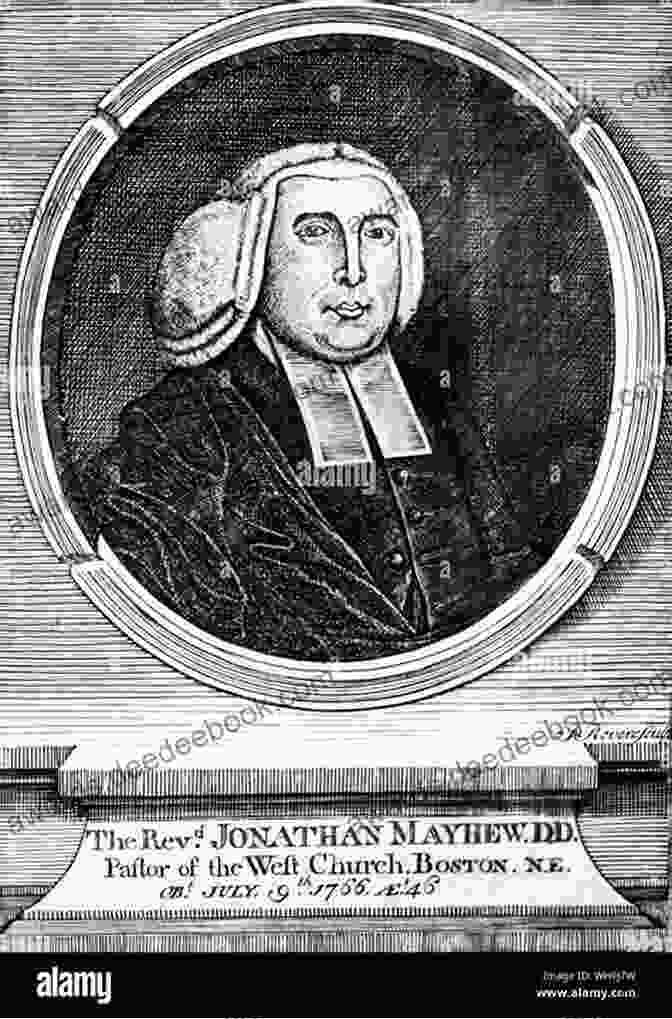
4.3 out of 5
| Language | : | English |
| File size | : | 1705 KB |
| Text-to-Speech | : | Enabled |
| Screen Reader | : | Supported |
| Enhanced typesetting | : | Enabled |
| Word Wise | : | Enabled |
| Print length | : | 261 pages |
Jonathan Mayhew (1720-1766) was a prominent American clergyman and political writer who played a significant role in shaping the intellectual and political landscape of Colonial America. As a leading advocate for religious freedom, natural rights, and the right to self-government, Mayhew's ideas resonated deeply with the colonists and helped lay the foundation for the American Revolution.
Early Life and Education
Mayhew was born in Martha's Vineyard, Massachusetts, in 1720. His father, Thomas Mayhew, was an influential missionary who preached to the Native American population. Mayhew's early exposure to the Wampanoag culture and the principles of Christianity instilled in him a deep appreciation for religious tolerance and social justice.
After graduating from Harvard College in 1744, Mayhew became pastor of the West Church in Boston, one of the leading Puritan congregations in the colony. He quickly gained a reputation as an eloquent preacher and a fearless advocate for progressive ideas.
Religious and Political Beliefs
Mayhew was a staunch advocate for religious liberty and the separation of church and state. He believed that individuals should be free to practice their religion without government interference. In his influential sermon "Discourse Concerning Unlimited Submission and Non-Resistance to the Higher Powers" (1750),Mayhew argued that citizens had a duty to resist unjust authority and that the government should only rule with the consent of the governed.
Mayhew's political views were deeply influenced by the principles of natural rights and social contract theory. He believed that all individuals are endowed with certain inalienable rights, including the right to life, liberty, and property. He also argued that governments are created by the consent of the people and should be based on the rule of law.
Opposition to British Policies
As tensions between Britain and the American colonies escalated, Mayhew emerged as a vocal critic of the British government's policies. He denounced the Stamp Act of 1765 as an unconstitutional infringement on the rights of the colonists. In his pamphlet "Observations on the Charter and Conduct of the Society for Propagating the Gospel in Foreign Parts" (1763),Mayhew condemned the British government's interference in colonial religious affairs.
Influence on the Revolution
Mayhew's ideas had a profound impact on the growing movement for independence in the American colonies. His sermons and writings provided intellectual and moral support to the revolutionaries, who drew inspiration from his advocacy for liberty and self-government. Mayhew's emphasis on natural rights, religious freedom, and the right to self-determination laid the groundwork for the principles that would be enshrined in the Declaration of Independence and the Constitution of the United States.
Death and Legacy
Jonathan Mayhew died prematurely in 1766 at the age of 46. His death was a significant loss to the cause of American independence, but his ideas continued to inspire the revolutionaries for years to come. Mayhew's legacy as a pioneer of religious freedom, civil liberties, and democratic principles remains a testament to his profound influence on the American Revolution and the development of American political thought.
Jonathan Mayhew was a towering figure in Colonial America, leaving an indelible mark on the principles that shaped the American Revolution. His advocacy for religious liberty, natural rights, and self-government resonated deeply with the colonists and provided intellectual and moral support to the movement for independence. Mayhew's legacy as a pioneer of American political thought continues to inspire and shape the nation's ideals to this day.
4.3 out of 5
| Language | : | English |
| File size | : | 1705 KB |
| Text-to-Speech | : | Enabled |
| Screen Reader | : | Supported |
| Enhanced typesetting | : | Enabled |
| Word Wise | : | Enabled |
| Print length | : | 261 pages |
Do you want to contribute by writing guest posts on this blog?
Please contact us and send us a resume of previous articles that you have written.
 Book
Book Novel
Novel Chapter
Chapter Reader
Reader Library
Library E-book
E-book Magazine
Magazine Paragraph
Paragraph Sentence
Sentence Bookmark
Bookmark Glossary
Glossary Bibliography
Bibliography Foreword
Foreword Synopsis
Synopsis Annotation
Annotation Footnote
Footnote Manuscript
Manuscript Codex
Codex Classics
Classics Narrative
Narrative Biography
Biography Autobiography
Autobiography Reference
Reference Encyclopedia
Encyclopedia Dictionary
Dictionary Thesaurus
Thesaurus Resolution
Resolution Card Catalog
Card Catalog Borrowing
Borrowing Periodicals
Periodicals Lending
Lending Reserve
Reserve Journals
Journals Reading Room
Reading Room Thesis
Thesis Dissertation
Dissertation Awards
Awards Reading List
Reading List Theory
Theory Textbooks
Textbooks Ken Robison
Ken Robison Richard Clark
Richard Clark Kimberly Mccreight
Kimberly Mccreight Jen Gaudet
Jen Gaudet Grant Ginder
Grant Ginder Allie C Kilpatrick
Allie C Kilpatrick Kenneth Pickering
Kenneth Pickering Ran Spiegler
Ran Spiegler Michael Bibby
Michael Bibby Craig Nelson
Craig Nelson Hilde F Johnson
Hilde F Johnson Matthew Sakiestewa Gilbert
Matthew Sakiestewa Gilbert Lloyd Whitesell
Lloyd Whitesell 1st Edition Kindle Edition
1st Edition Kindle Edition Nicola Carroll
Nicola Carroll Rich Waters
Rich Waters Danny R Smith
Danny R Smith Sam Alaoui Ms Mba
Sam Alaoui Ms Mba Carla Eatherington
Carla Eatherington Jeremy Schroeder
Jeremy Schroeder
Light bulbAdvertise smarter! Our strategic ad space ensures maximum exposure. Reserve your spot today!

 Ralph Waldo EmersonDirty Games: The Florida Devils Series - A Comprehensive Analysis of the...
Ralph Waldo EmersonDirty Games: The Florida Devils Series - A Comprehensive Analysis of the... Ethan GrayFollow ·18.4k
Ethan GrayFollow ·18.4k Oscar WildeFollow ·17.7k
Oscar WildeFollow ·17.7k Glenn HayesFollow ·9.1k
Glenn HayesFollow ·9.1k Javier BellFollow ·19.2k
Javier BellFollow ·19.2k Alex ReedFollow ·13.1k
Alex ReedFollow ·13.1k Aron CoxFollow ·16.3k
Aron CoxFollow ·16.3k Pete BlairFollow ·11.1k
Pete BlairFollow ·11.1k Victor TurnerFollow ·18.7k
Victor TurnerFollow ·18.7k
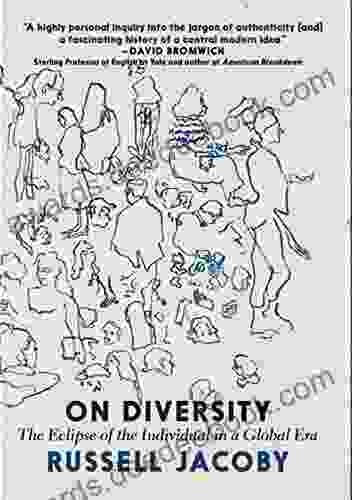
 Roger Turner
Roger TurnerThe Waning of the Individual in the Global Era: A...
In the rapidly globalizing world of today,...

 Reginald Cox
Reginald CoxFirst of Verbs: An Early Language
The First of Verbs (FOV) is an early...

 Cody Blair
Cody BlairThe Biography Of The Myth: Routledge Historical...
Who is the Myth?...

 Dean Cox
Dean CoxArtificial Neural Networks: Unraveling the Amazing...
Artificial Neural Networks (ANNs),...
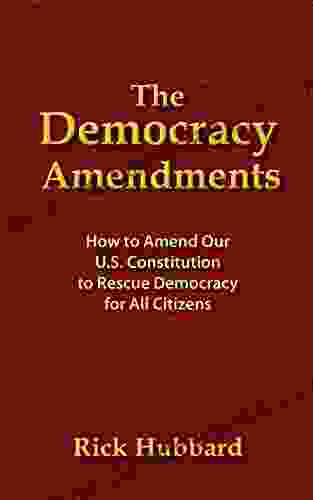
 Kyle Powell
Kyle PowellHow To Amend Our Constitution To Rescue Democracy For All...
Our democracy is in...
4.3 out of 5
| Language | : | English |
| File size | : | 1705 KB |
| Text-to-Speech | : | Enabled |
| Screen Reader | : | Supported |
| Enhanced typesetting | : | Enabled |
| Word Wise | : | Enabled |
| Print length | : | 261 pages |


